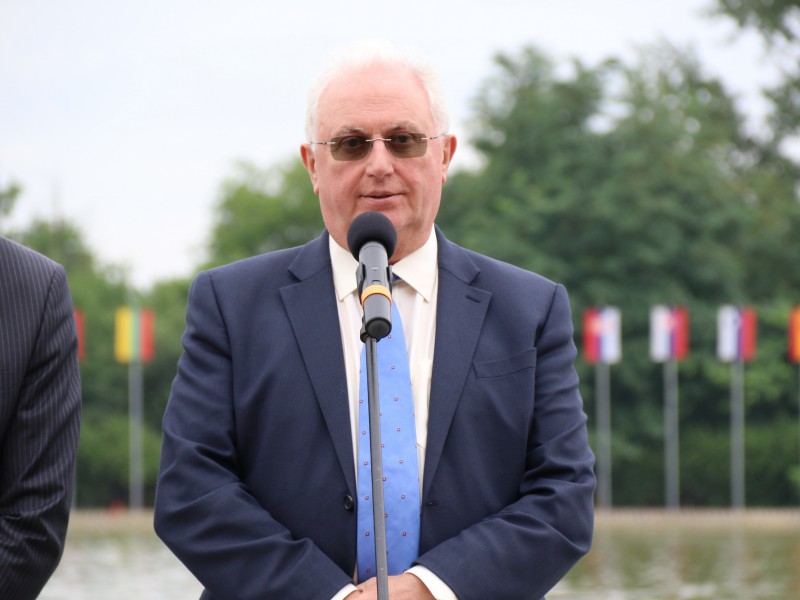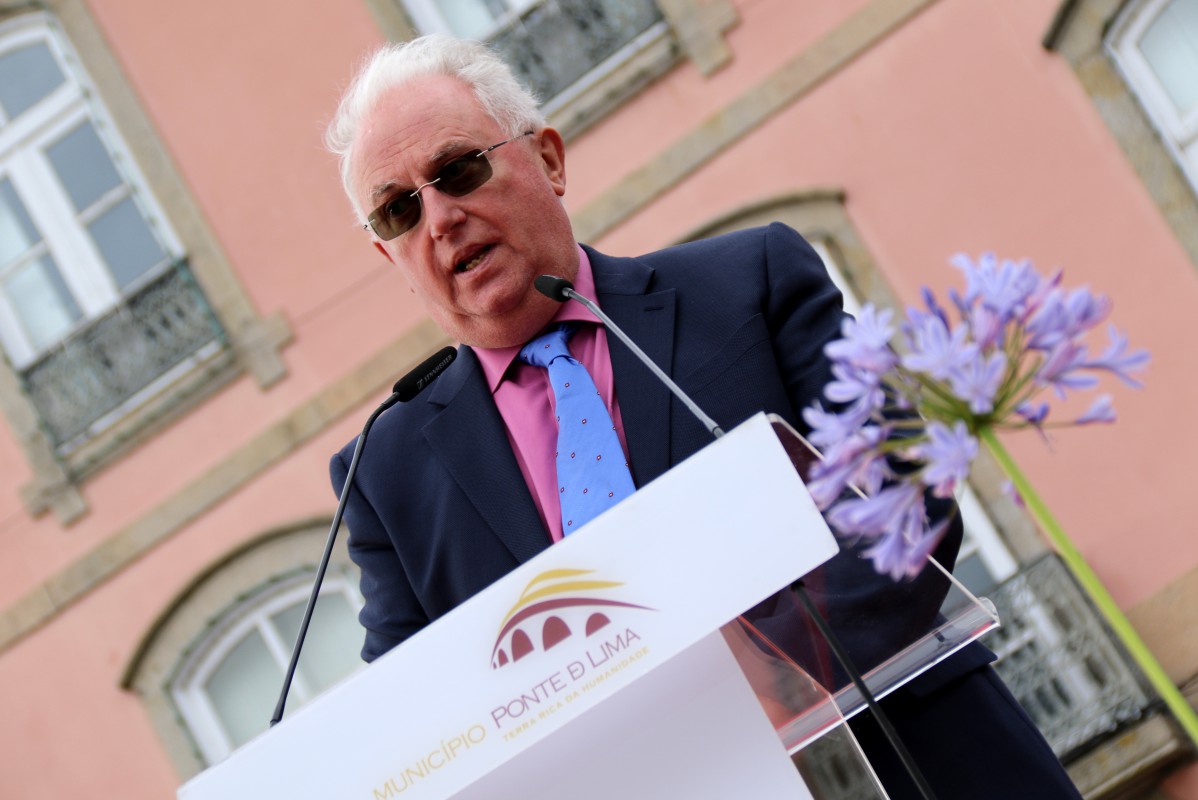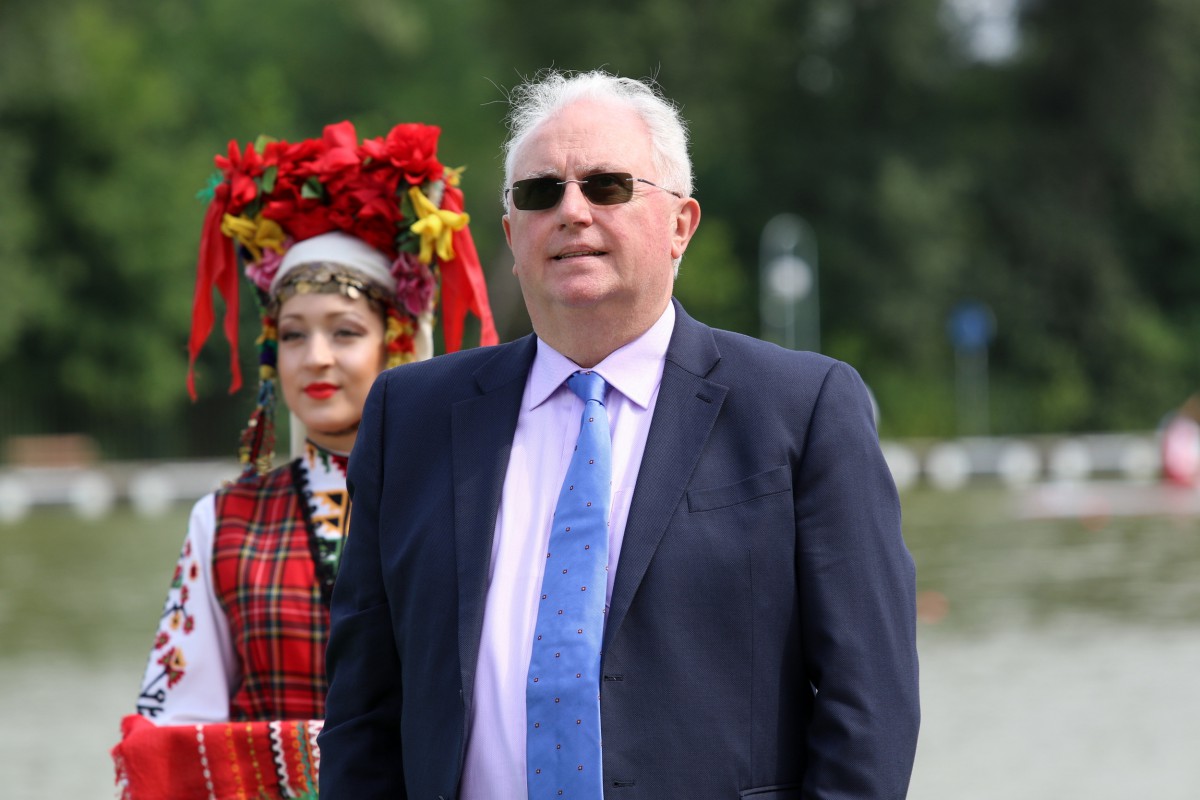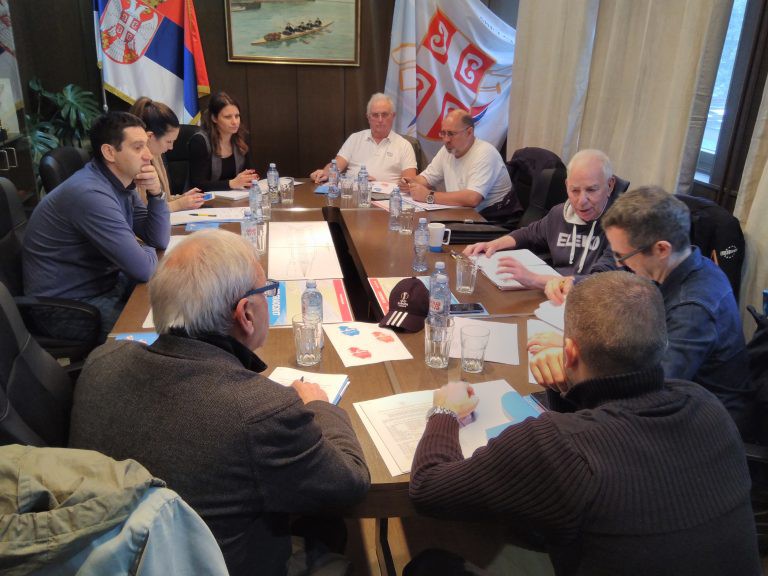Are you satisfied with the popularity of canoeing?
Well, I think canoe/kayak in general is very popular. It gets a lot of television coverage in the Olympic Games and it’s very important to keep television coverage in between the Olympic Games as well, which is why we are here to discuss the television production here in Belgrade in June. So that’s very important for the promotion of our sport. There has been a big change in the Olympic disciplines obviously, and you can’t please everybody all the time. But at least we’ve kept our twelve events in the Olympic programme which is the main thing. And it was important that we had equality of the genders, because that’s an IOC dictate. They wanted six events for women, six events for men.
It wasn’t like that in the past?
No, no it wasn’t. The women’s events that we bought in recently in the last few years are women’s C1 200m and women’s C2 500m, and they will be in the Olympic programme in Tokyo. We’ve lost some lovely events, like K4 1000m for instance. It’s gone, and it’s now K4 500m. The reasoning behind it was that you have K1 1000m, K1 200m, and you have K4 500m. And that means for the smaller countries you don’t qualify for K4 separately. Then it is possible for the K1 1000m paddler to paddle 500 meters in K4, and also for the 200m paddler to do the same.
You’ve put a great value in promoting paracanoe. Can you tell me more about that?
In Britain, for instance, we’ve had a committee for canoeing for disabled people for nearly 30 years now. But there’s a difference between bringing disabled people into canoeing and using disabled athletes at the Paralympics. It’s similar to high level athletes in the world sprint championships and somebody that just want to paddle in the canoe. There’s a difference, it’s grassroots and competition. We got into the Rio Paralympic Games and I was lucky enough to be there. There were six events, all kayak events (three man and three women), and now we brought in the Va’a events, which are outrigger events, and they’re in programme here, and three of those events are in the Paralympics in Tokyo. We’ve gone from 60 athletes - 6 events to 90 athletes - 9 events which is a good progression. And we have events here in outrigger which is not yet in the Paralympics, but some of them are. Three are and three are not at the moment. So that’s something we need to work on in the future. But for the sport of canoeing as a whole, if canoeing is in the Paralympics as well as the Olympics, it makes canoeing in stronger position to stay in the Olympic programme.
And Paralympic sport in general is becoming very popular. I think it’s good for the athletes themselves as well, because very often, I’ve seen it myself, there’s somebody in a wheelchair and somebody pushing the wheelchair. What is taught is - if you want to know what’s wrong with the person in the wheelchair, you speak to the person in the wheelchair, not the person that is pushing him or her. And that is very important, and they’ve told me a lot of things, like you try to help people if they can’t walk very well, and they say to me, ‘Albert, if we need your help, we will ask you.’ And I have to stay back, because it’s only human to help people if they’re struggling, but they are so independent and I really admire how they overcome their disability to paddle. Canoeing is a great sport if you got lower body disablement and you’re in a canoe you are nearly able-bodied.
Can you tell me about the future of canoe sport?
I can only tell you a little bit about the future, because it’s still being discussed by the ICF technical committee under Frank Garner from Canada, but I think they are thinking of maybe bringing our events down to 500 and 200 metres, and not a 1000.
So, 1000 metres could be excluded?
It could be, but I don’t know, I can’t tell you for sure. It’s something they are thinking about, and the IOC would welcome that, because our venue would then be shorter and cheaper to construct. Rowing on the other hand - pararowing used to be 1000 metres and now they moved it to 2000 metres. They have some issues and they lost some events, some athletes and some light weight events were changed to women’s. But that’s for rowing to discuss.
In canoeing we do so much. We do 200, 500, 1000. We do 5000 meters as well, which I think is a good thing, and there are so many facets. But what we need to do is we got to make our sport as attractive as possible. You know sometimes at sprint regattas there’s a long distance between the races, long time… And the spectators have nothing to look at, especially in the heats. And then it starts to get more exciting during the semi-finals, obviously, and finals. But we can do a lot with the programme and I think if we have a confined area, if you take, say, 500 meters and 200 meters, that is a very good arena.
What about attracting more people to competitions? In Serbia we have problems attracting people to see the canoeing competitions.
In Britain we have the same; I think you only get a lot of people to watch canoeing in Hungary. But Rome wasn’t built in a day. Sprint for example was a part of the Olympic Games for the first time in 1936 and the first medal that Britain got was actually in slalom in 1992. C1 paddler Gareth Marriot got silver, and then the first sprint medal we got was Tim Brabants in Sydney, who was third in the 1000 metres. And now we start to get more British sport funds, more professional system ... Liam Heath is fantastic, Ed McKeever before him, juniors and U23s. Britain seems to be occupying men’s 200m events at the moment. That can only help. The success makes the sport only more popular. People say: ‘You spend a lot of money on few people at the top of the sport’, but with success it brings more people into the sport.
What do you think about the venue in Belgrade?
The surrounding is very pleasant and also compared to Britain you have a very good weather here in this country, which always helps. You don’t have a return lane, but the lake is very wide, so we keep the athletes on the other side of it. And the athletes are well disciplined in effect, not to affect the athletes on the course, they slow down, wait for the race to come past them, and carry on. So it’s not a major issue. There are areas here which you don’t have control of, like the swimming people, but it’s such a beautiful area. You have members of the public here, who go swimming or whatever, and they see canoeing and they stop to watch that as well. There’s always a plus and a minus in everything. But I love this place and always look forward to coming. When I hear that Belgrade is on the agenda, I will be here.
Danko Novović / Serbian Canoe Federation
 12.12.2017
12.12.2017





